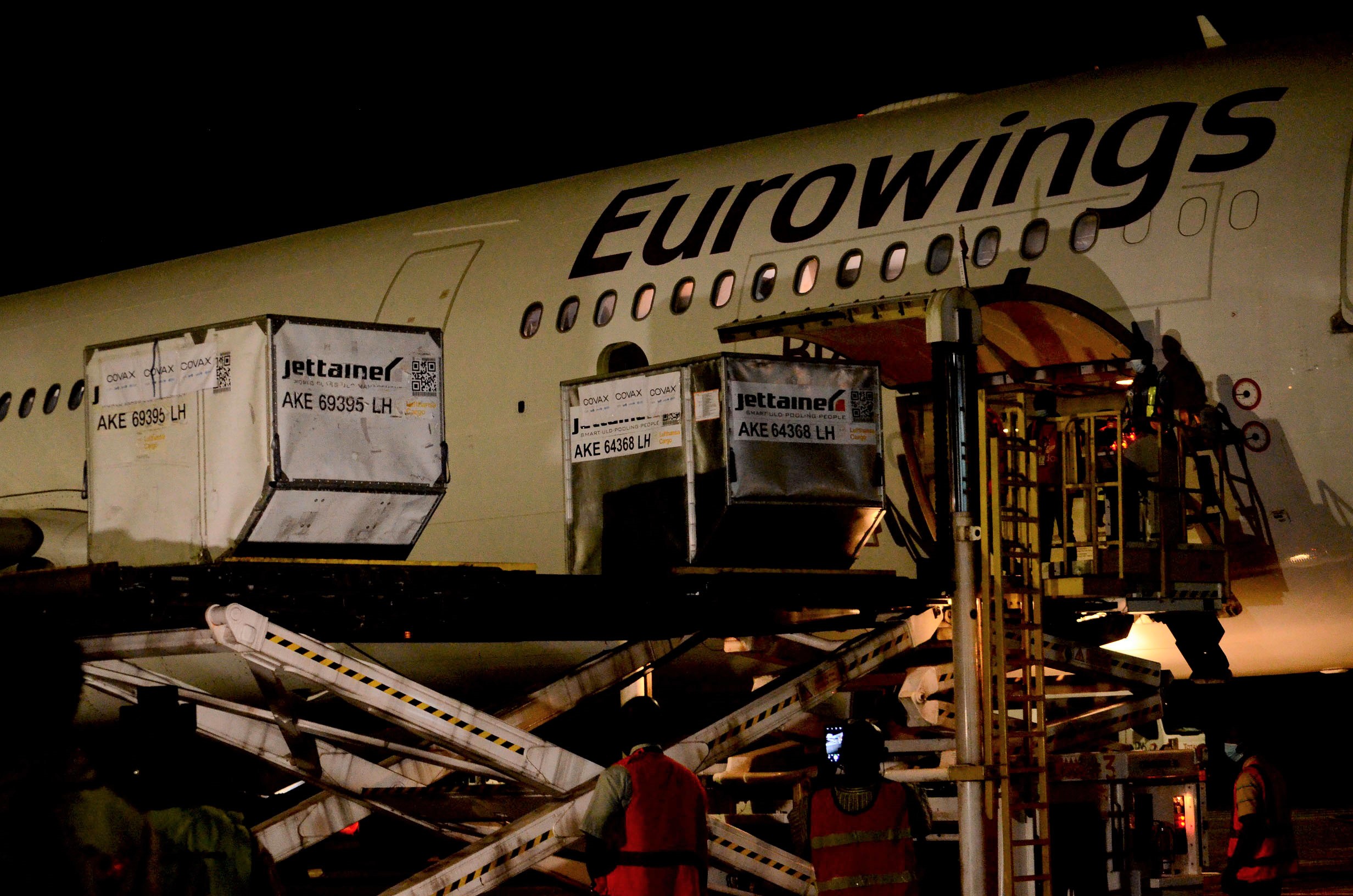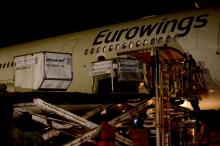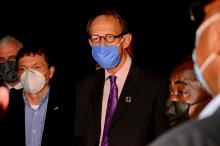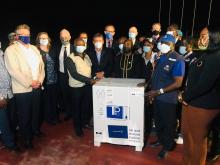96,000 Doses of COVID-19 Vaccine Arrives in Liberia
 Margibi, Liberia, 05 March 2021 - Liberia received 96,000 COVID-19 vaccine doses shipped via the COVAX initiative, a partnership between CEPI, Gavi, UNICEF and WHO. The arrival of the vaccines in Liberia is part of the historic step towards achieving the goal of equitable distribution of COVID-19 vaccines globally, in what will be the largest vaccine procurement and supply operation in history. This delivery is part of a first wave of shipments that will continue to different countries in the coming days and weeks.
Margibi, Liberia, 05 March 2021 - Liberia received 96,000 COVID-19 vaccine doses shipped via the COVAX initiative, a partnership between CEPI, Gavi, UNICEF and WHO. The arrival of the vaccines in Liberia is part of the historic step towards achieving the goal of equitable distribution of COVID-19 vaccines globally, in what will be the largest vaccine procurement and supply operation in history. This delivery is part of a first wave of shipments that will continue to different countries in the coming days and weeks.
In addition to the vaccines, Liberia also received 97,000 syringes and 600 safety boxes that will be used for the administration and disposal of immunization waste.
The arrival of the 96,000 doses of the AstraZeneca vaccine, manufactured by the Serum Institute of India (SII), marks the first batch of vaccine shipped to Liberia by the COVAX initiative as part of its unprecedented efforts to deliver at least 2 billion doses of the vaccine globally by the end of 2021.
"Today we are making history in Liberia with the arrival of the first doses of the COVID-19 vaccine into the country. We are proud to be part of COVAX global cooperation which demonstrates the best of humanity. Vaccines save lives and we are all confident that this important milestone will allow Liberia to get back to business and continue our efforts to build back the economy of Liberia,” Honorable Dr. Wilhelmina Jallah, Health Minister of the Republic of Liberia .
"The arrival of the first vaccines represents an important moment for Liberia as it gives the people a tool to halt a global disease that has already impacted the lives and livelihoods of so many. I’m very proud of Liberia team who made this important step a reality”, Jonna Jeurlink, Senior Country Manager at Gavi, the Vaccine Alliance.
Niels Scott, United Nations Resident Coordinator in Liberia said, “the United Nations is proud to support the Government in saving lives and ensuring an equitable distribution of COVID-19 vaccines through COVAX, the largest and most varied portfolio of COVID-19 vaccines globally.”
Dr. Peter Clement, WHO Country Representative in Liberia said “the delivery of vaccines to Liberia today is a historic moment and reaffirms WHO’s commitment to ensure access to life saving vaccines for eligible people in Liberia. It also signifies the strong partnership and collaboration to control COVID-19 in Liberia and globally. Let us continue with the COVID-19 preventive measures because these vaccines will not be used for mass vaccination but selected category of people.”
"We are very proud to support the Government of Liberia in the fight against COVID-19. The arrival of vaccines in the country is an essential milestone for strengthening and protecting health workers and staff working on the pandemic's frontline. We will continue to play our role as a key delivery partner and provide the technical support to ensure COVID-19 vaccines are safely delivered for the launch of the immunization campaign,” said Laila O. Gad, UNICEF Representative in Liberia.
COVAX is co-led by GAVI, the Vaccine Alliance, the World Health Organization (WHO) and the Coalition for Epidemic Preparedness Innovations (CEPI), working in partnership with UNICEF as well as the World Bank, civil society organizations, manufacturers, and others.
The United States, Team Europe (the European Union and the European Union Member States), the United Kingdom, Japan and Canada are among the main donors to the COVAX Facility.
For several months, COVAX partners have been supporting governments and partners in readiness efforts, in preparation for this moment. This includes assisting with the development of national vaccination plans, support for cold chain infrastructure, as well as stockpiling of syringes and safety boxes for their disposal, masks, gloves and other equipment to ensure that there is enough equipment for health workers to start vaccinating priority groups as soon as possible.
In order to foster the early introduction of COVID-19 vaccine in Liberia, the country has identified its 20% priority population or target group in accordance with the guidance. The priority group includes health care workers, elderly people (60+), people with co-morbidities, refugees and other essential workers who cannot social distance due to the work they performed.







